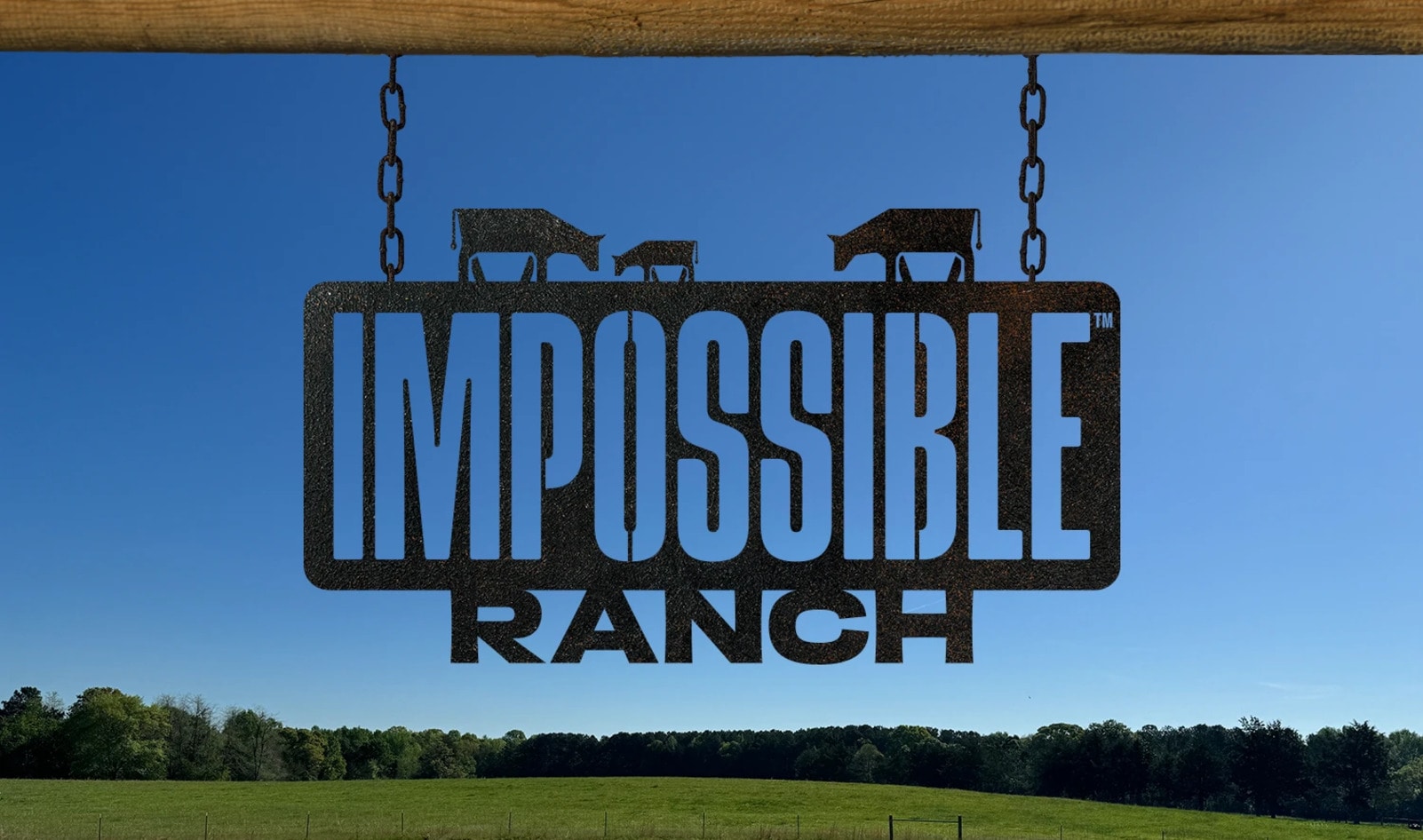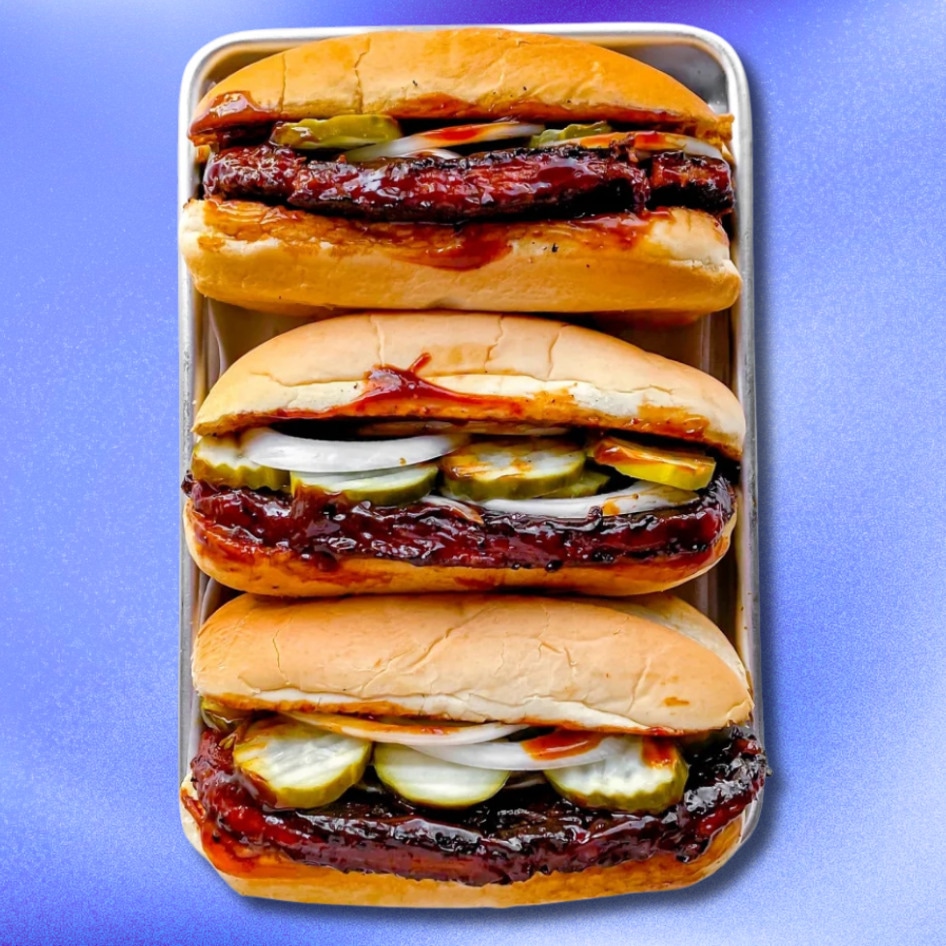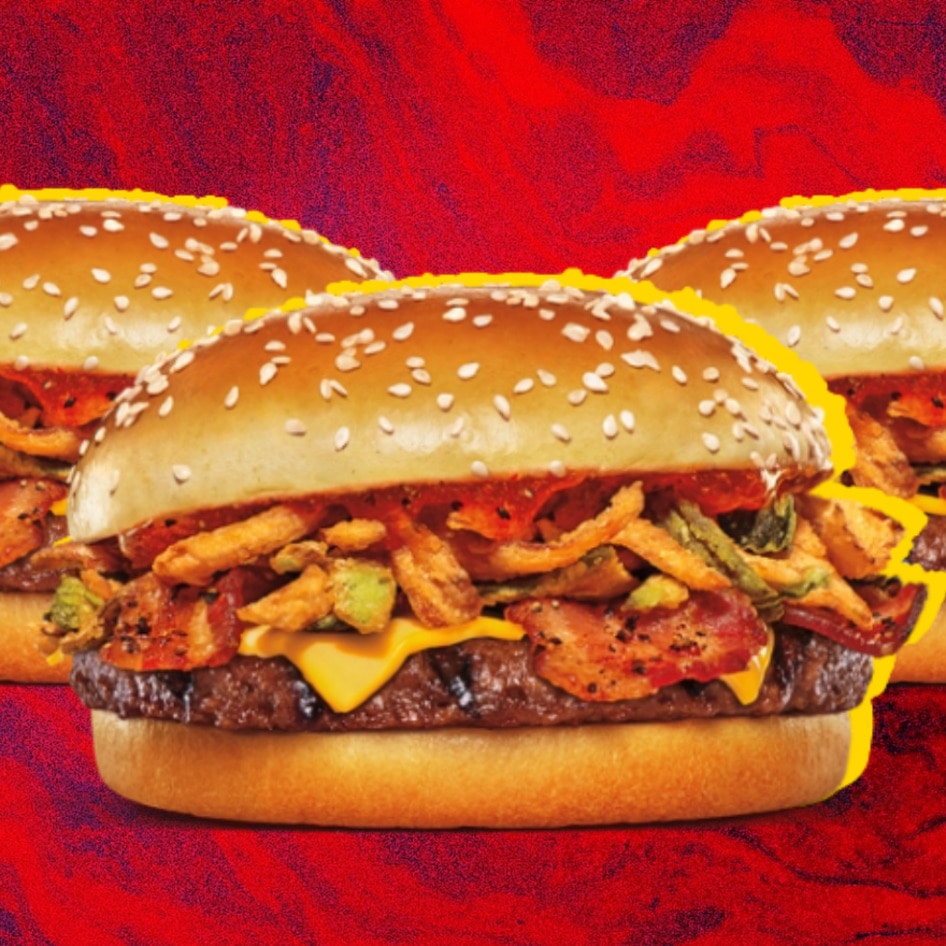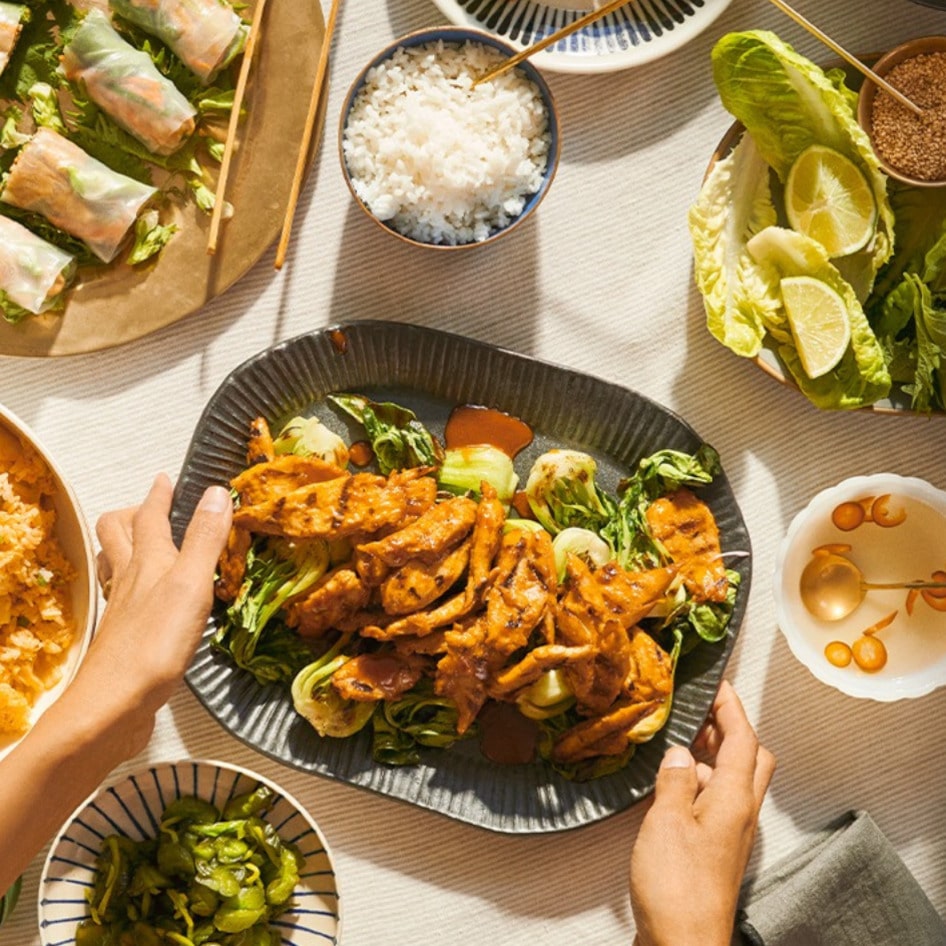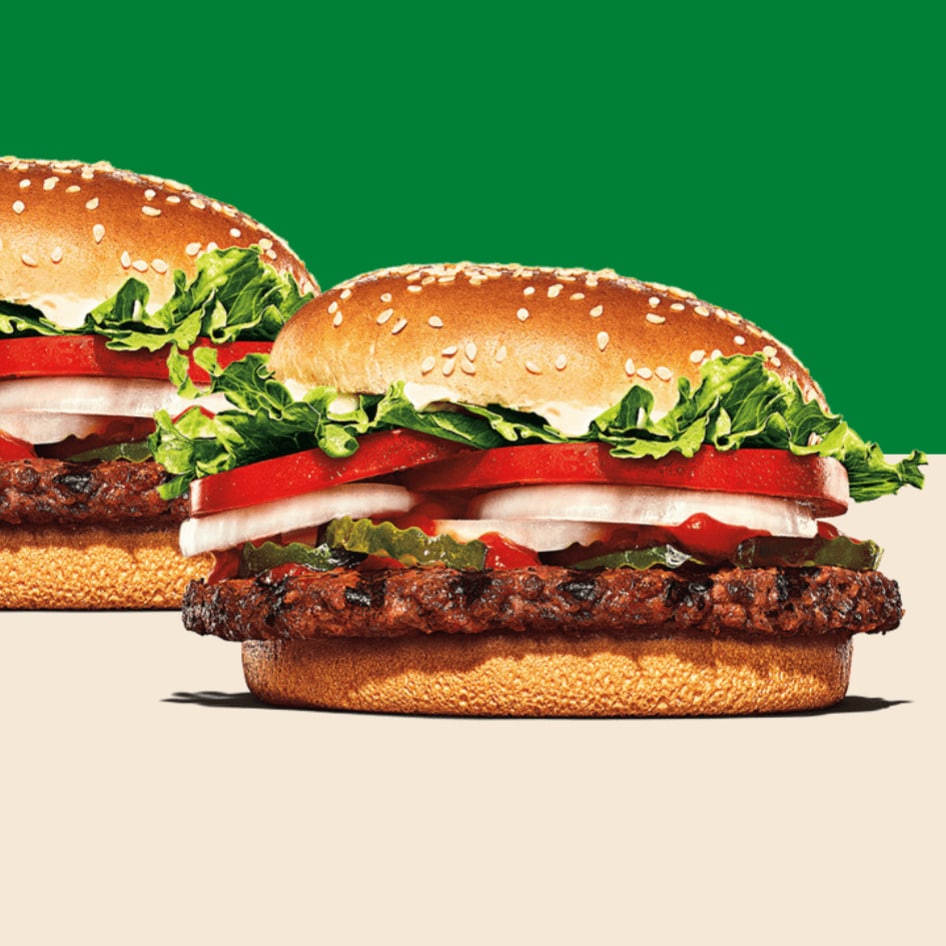This past Earth Day, two California companies known for their plant-based offerings made significant announcements that underscore the tumultuous landscape of the plant-based sector and the wider food industry at large. The first came from the Northern California-based plant-based meat giant Impossible Foods: it is opening “Impossible Ranch,” a South Carolina-based former cattle ranch that will grow crops for the ingredients used in its meaty plant-based burgers and also provide a loving home for rescue cattle. The second came from a long-standing Los Angeles restaurant chain formerly known as Sage Vegan Bistro: it is adding animal meat to the menu, and rebranding as Sage Regenerative Kitchen & Brewery.
While Sage didn’t reference finances in its announcement (though it follows a slew of location closures over the past couple of years), the news from these institutions is representative of a much wider split in the plant-based food industry. Sales are falling and brands can’t work out how to get the much-needed attention of consumers. The million-dollar question seems to be: where on the plant-based scale do you need to fall to thrive in this ever-changing consumer market? For many, the answer is, perhaps, let’s just meet people where they’re at. And more often than not, that seems to be somewhere in the middle—a movement also known as flexitarianism.
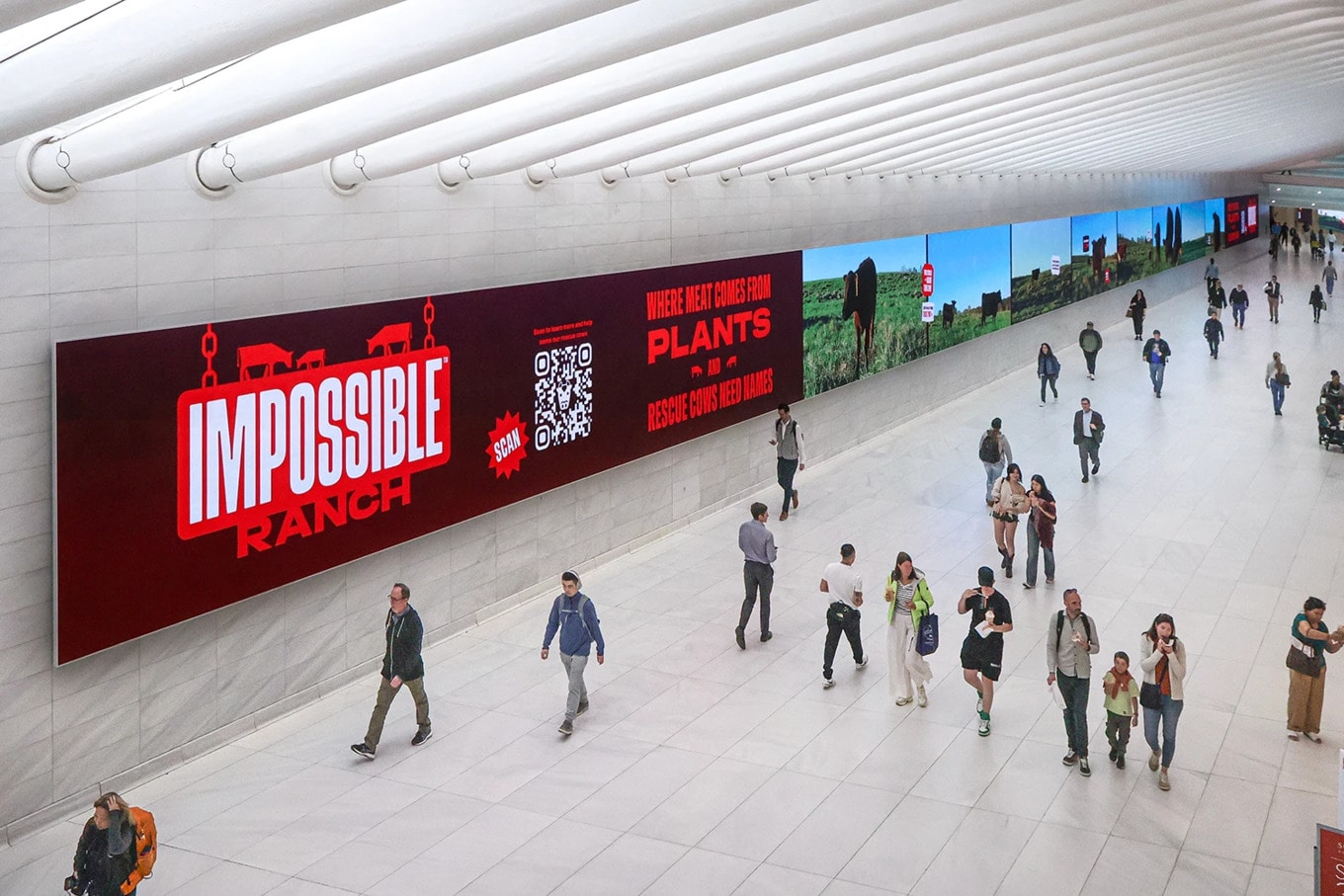 Impossible Foods
Impossible Foods
The growing vegan food industry
In the last few years, the vegan food industry has rapidly expanded, and going meat- and dairy-free has soared in popularity. The UK-based monthlong vegan campaign Veganuary, for example, reported record-breaking sign-ups this year. In fact, it was reported in February 2024 that the January campaign had helped more than 1.8 million people around the world to try the plant-based lifestyle for the month.
Back in 2013 when Veganuary was founded, 1.8 million sign-ups would have been an unfathomable number. Back then, it launched with 3,000 participants. The food landscape was very different a decade ago—veganism and plant-based food was far from mainstream. But in an incredibly short space of time, things have changed significantly.
Now, there is no shortage of plant-based brands fighting for space in the category; even the world’s biggest fast-food chains are offering meat-free options. In 2013, the idea of an Impossible Whopper (now available in Burger King restaurants across the US), a McPlant (available in McDonald’s locations across Europe), or a vegan burger at KFC (in the UK) would have felt like the punchline of a joke, and yet, right now, all three are a reality.
If we stop to take stock for a moment: this is a monumental achievement. More people than ever are making plant-based choices for their health, the animals, and the planet, and the world’s biggest food brands are listening. Even the company synonymous with processed meat, 140-year-old Oscar Mayer, recently debuted its first plant-based hot dog in response to the demand for more vegan food. But that demand isn’t solely coming from vegans, it’s mostly coming from flexitarians.
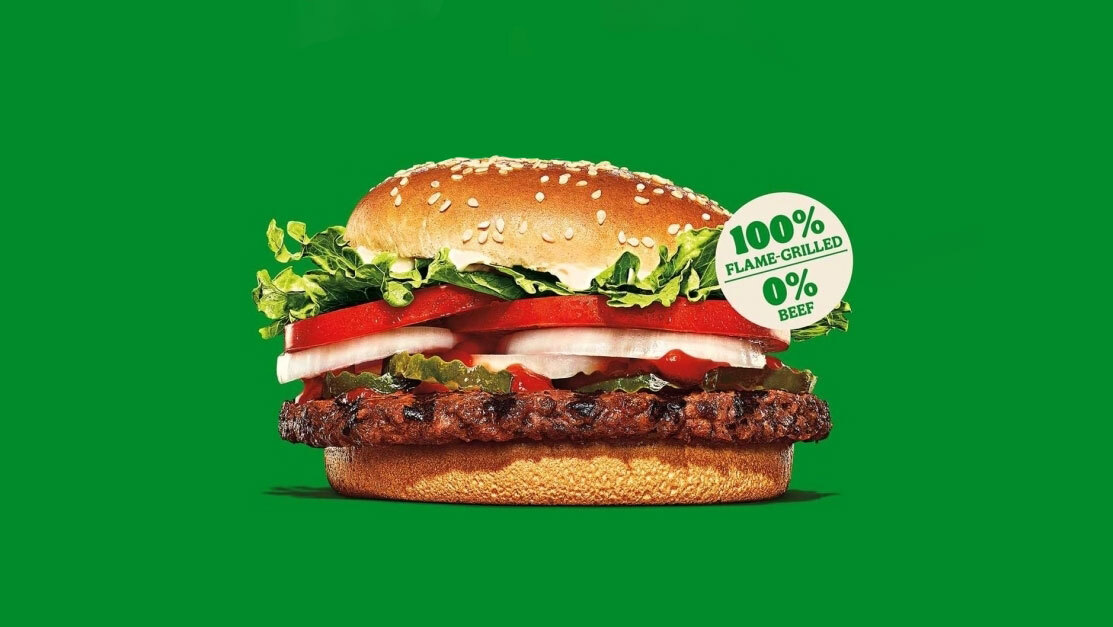 Burger King
Burger King
Is catering to flexitarians important for businesses to survive?
Businesses that cater to vegans only are struggling. And so, just like Sage Regenerative Kitchen & Brewery, other Los Angeles businesses, like Hot Tongue Pizza and Margo’s, have pivoted away from a 100-percent vegan model. “I think if we did not make the change, we were definitely going to have to close down,” Margo’s owner Mark Verge told Eater.
In 2020, Los Angeles burger chain Burgerlords ditched meat and dairy and went vegan, but in 2023, it reversed that decision, again, citing poor sales as the main reason. “Our sales plummeted by 50 percent,” founder Fred Guerrero told Eater. “I had hoped that over time we would gain some of that back, but that day never came.”
In the UK, the London-based restaurant chain Clean Kitchen also recently announced it would be adding animal products to the menu. Earlier this year, Charlie Watson, the founder of the UK vegan restaurant chain Oowee, announced that while Oowee’s four vegan sites would remain that way, future locations would offer meat.
Like many other food businesses (not just plant-based, it’s important to note), Impossible Foods is also having a hard time right now (last year, the brand was forced to lay off 20 percent of its workforce), and it needs new strategies to connect with consumers. As well as launching the new Impossible Ranch, it recently changed all of its packaging to red, the color of many meaty fast-food brands, such as McDonald’s and Burger King, in a bid to entice more meat-eaters.
Because, while Impossible Foods is a completely vegan brand, it has one key thread in common with the restaurants and eateries adding meat to the menu: it needs to appeal to and cater to flexitarians to survive. And it has no issue working with meat-focused brands to achieve that. Burger King’s Impossible Whopper is, of course, made with an Impossible Burger.
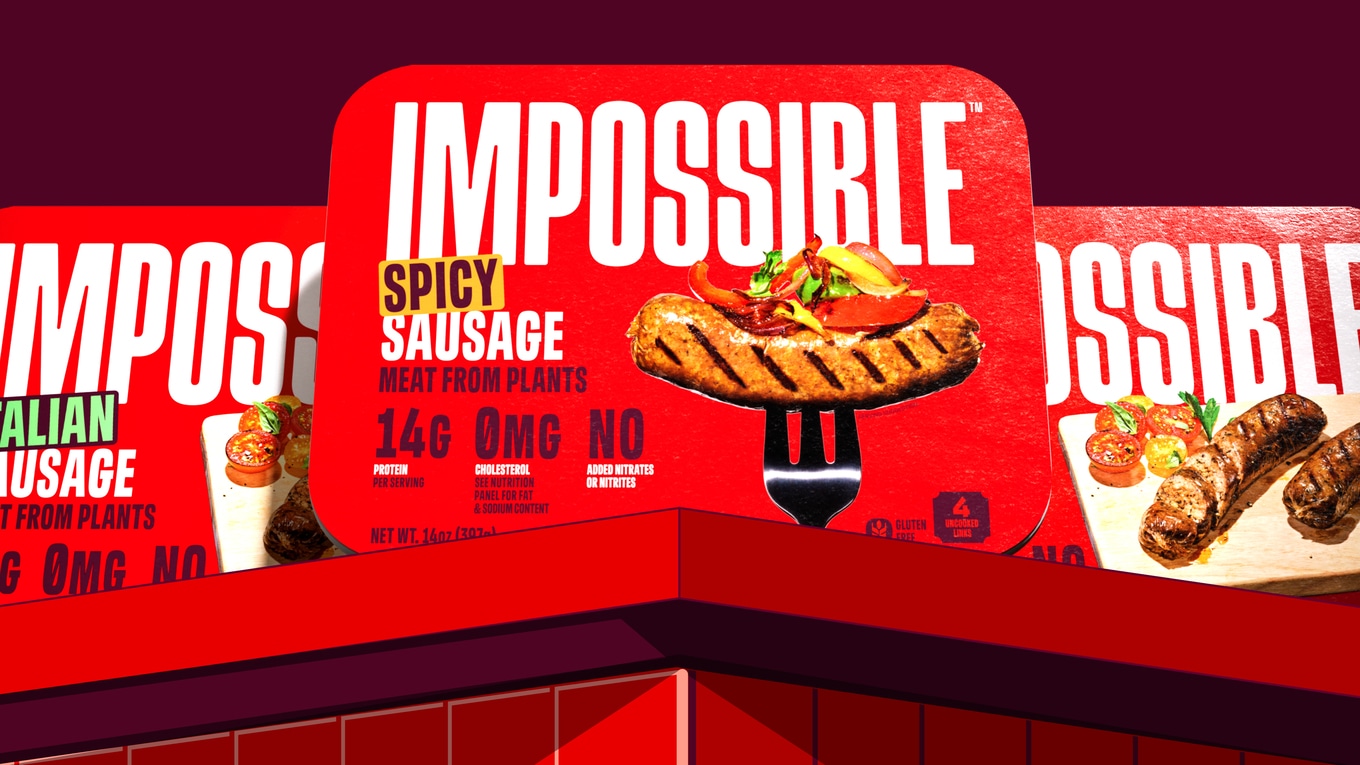 Impossible Foods
Impossible Foods
Are we really ready for a vegan world?
Society, it seems, is not quite ready for a world full of vegan-only businesses, but it is more flexitarian than ever. In April 2022, research from Beneo GmbH evaluated more than 12,000 consumers from 10 countries and found that around one in four identified as flexitarian. This means that while they still eat animal products, they are also upping their consumption of plant-based foods (dairy-free milk is particularly popular; the market is set to exceed $43 billion by 2028). Just a decade ago, this wasn’t the case. In fact, the word “flexitarian” only just made it into the Oxford English Dictionary in 2014.
Former vegan businesses choosing to offer meat is disheartening for many, there’s no getting away from it. It is particularly gut-wrenching for those who care deeply about animals—flexitarian diets might be better for the planet (more on that here), but they still allow for the slaughter of animals. And in the eyes of an ethical vegan, even one cow losing their life for a burger is one cow too many.
But perhaps, for now, more flexitarian menus are an important step on the ladder towards a more plant-centric food system. Businesses are meeting the majority of consumers where they’re at, by giving them the options that they need to get through the door, but also providing the very best vegan options to keep them coming back.
“People want more options, and because most places do a good vegan menu, friendship groups that contain both plant-based and meat-eaters can easily find somewhere that caters for both.” —Charlie Watson, Oowee founder
And at the same time, Impossible Foods is working with meat-focused companies, bringing the right people to its door, to show them that cattle deserve love and affection with its Impossible Ranch.
Watson says he will always ensure the vegan options are as good as, if not better, than any meat on the menu. “We’re pushing to be vegan where we can,” he told Restaurant Online, after confirming that thanks to his non-vegan locations, he’s made it through an incredibly tough year for hospitality.
The same can’t be said for many other plant-based restaurants. In the last few years, Los Angeles has lost multiple vegan businesses, including Double Zero, several locations of Veggie Grill, Junkyard Dog, and Native Foods Cafe. In the UK, vegan fast food chain The Vurger Co. appointed administrators in July 2023, and Neat Burger was forced to close half of its UK estate and rebrand to survive. “If you’re specifically 100 percent plant-based, then you’re going to struggle,” said Watson.
A world full of vegan businesses could be the final step in society’s journey towards a more sustainable, ethical food system. And it might not be too far away: less than 10 years ago, even a world that caters this well to flexitarians would have felt like a pipe dream.
For more plant-based stories like this, read:
JUMP TO ... Latest News | Recipes | Guides | Health | Subscribe

